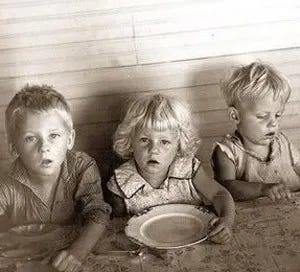Since the Alito leak happened, I’ve had a number of female friends reach out with deep concerns about the possibility of their getting pregnant in a post-Roe world, and one question that’s come up each time is, “I don’t understand how conservatives can be for forcing me to give birth and then be against me getting help after the baby is born,” usually followed by swears, curses, and accusations.
To start to answer that question, there are different sub-worlds on the Left and Right, and regarding abortion and welfare, these 3 sub-worlds on the Right have different views on this:
Planet Libertarian - No welfare for anyone, but you absolutely should have the right to have an abortion. If you want an abortion on your drug farm, that’s your business, and you should be free to use belt fed .50-cals, reaper drones, and surface-to-air missiles to make sure the government doesn’t interfere in your right to bodily autonomy and privacy.
Planet MAGA - No abortion (he intentionally selected pro-life judges to overturn Roe), but you do get welfare. Coming into office Trump knew that his base needed public assistance, and while he did go after SNAP (food stamps) and implemented work requirements on welfare recipients, his goal was to grow the economy such that fewer people needed welfare. Towards that aim he created 9000 Opportunity Zones in low-income areas and did a lot on trade to try and bring manufacturing back to America. That’s probably contentious territory and people will disagree with my assessment, but I’m going with it because want to contrast this softer version of welfare reform to….
Planet Norquist - No abortion and no welfare. Grover Norquist famously said, “"I don't want to abolish government. I simply want to reduce it to the size where I can drag it into the bathroom and drown it in the bathtub.” This is the scenario where a woman cannot obtain an abortion, and there is no government help coming after the baby is born, which is the scenario that is scaring people.
(Note 1 - My wife and I were on all the welfare programs when our daughter was born, as my wife was just finishing her undergrad and I was finishing my M.A., and we were both working in low-paid hourly positions - she was a waitress and I was a para-educator working with children with special needs.)
So what are people on Planet Norquist thinking? Why would people want a world where women are forced to give birth, and then there’s no government help for them once the baby is born?
Their argument would be that there are communities where pregnancy, whether intentional or not, is celebrated, and where they don’t need government assistance because the community members pitch in and help one other. They’re almost always religious communities (Amish, Muslims, Mormons, etc.), and it works because people aren’t hyper-individuated and living atomized lives separate from their neighbors.
(There’s room for a Leftist critique of capitalism and alienation here)
The argument goes that government welfare breaks down these communities, as people get resources without having to participate with, and give back to, their community. People get checks from the government, and thus are not incentivized to work with their neighbors to take care of each other. Compared to the freedom of Planet Libertarianism, Planet Norquist imposes social forces that are meant to rebuild communities, with individuals paying the price in terms of lack of resources and lack of freedom. It’s a form of soft coercion towards an idealized re-establishment of community as its aim.
By coercing people and cutting off welfare, people will have to get jobs to work and will have to build social ties to survive. If people complain that they don’t have community to turn to, the argument is that they’ll probably rectify that quickly when starvation is the alternative.
So the dialogue looks like this:
Women - What the hell is wrong with you? You want to take away my ability to have an abortion and then not even help me?
Planet Norquist - By not helping you, we’re forcing you to learn to help yourself. In the end we’ll all be better off for it.
Women - So what you’re saying is…
Planet Norquist - I’m sure you’ll figure something out.
[Note 2 - That’s probably not the most neutral possible take possible, but it does fit, so I’m going with it.]
[Note 3 - There’s an Aristotelian aspect to all of this - Individuals build families, families build communities, communities build cities, cities build states, states build nations. The whole is more important than the part. That actually fits in with the Freudian and Critical Theory understanding of society sublimating the libido towards collective social order, wherein people have their sexual needs met by performing their gender roles. That social order need outweighs individual autonomy in this view, which would be part of the explanation as to why it’s opposed by feminists and libertarians. ]
Note to Lefties - there’s a good opportunity here for expanding the welfare state in a post-Roe world. Jamie Wheal wrote an excellent article, 'Shouldn't We All Be Pro-Life, Really?', which makes the following case:
Wheal to Righties -
"So you say that you are deeply committed to Family Values, and that's why you fight so hard on these issues? Great! So are we. We also believe in the sanctity of marriage––and that loving families form the bedrock of healthy communities. We believe that dedicated relationships matter. We believe children thrive when cared for by a committed family that loves them and enjoys all the legal, social and economic protections available. (We also believe that who we love is up to us and that family structure has always been fluid and adaptive over time). #ittakesafamily
What A Trans-Partisan Pro-Life Stand Might Look Like
To recap how we can all take a unifying stand for the power and dignity of being Pro Life, it might go something like this:
We believe that life begins at conception.
We do not distinguish which side of the birth canal a child finds themself.
We believe that an abortion is a significant medical and emotional act that should be held as a last resort.
To reduce the incidents of abortion we support widespread contraception and sex education.
We believe in excellent pre and post natal care, fourth trimester care and early childhood education and health services.
We believe that every child should be a wanted and supported child. (currently in the United States 50% of pregnancies are accidental) #everychildawantedchild
Now will that satisfy everyone? Not likely.”
Last piece of recommended reading, from a 1997 Brookings Institute article on welfare reform:
“Liberals first. Faith matters. Ironically for a liberal welfare tradition that had its roots in religious revival, many of today’s liberals acknowledge that religious faith is certainly a matter of importance, while ignoring—or being actively hostile to—its policy potential as a catalyst for radical change in people’s lives.
During the last welfare debate, for instance, Senator John Ashcroft’s “charitable choice” provision to allow states to contract with private and religious charitable organizations using federal funds was broadly attacked by many on the left. Yet its basic purpose was simply to level the playing field for faith-based not-for-profits.
Overwhelming evidence coming from groups as diverse as the Heritage Foundation and Public/Private Ventures suggests that faith is not only important, it may be the factor in determining whether an at-risk child, a welfare mother, or a convicted criminal is able to turn his or her life around. It is vital that political liberals embrace this idea. The next year will give them opportunities to do so: new efforts to encourage this kind of religious element in welfare include the charity tax credit and further implementation of charitable choice—type measures.
Conservatives next. Governmental programs can do—and have done—good. In just the past few —decades, hunger and malnutrition have become far less serious social problems thanks to food stamps. Where once one out of every three elderly Americans was in poverty, today that number has dropped to about one in ten, thanks to the indexing of Social Security benefits and Medicare. These are social policy successes virtually without parallel.
Despite its well-documented failures, particularly vis-á-vis the family, the War on Poverty changed the face of poverty. The lesson for conservatives is that keeping intact a safety net of noncash services for the poor—and especially for the children—is crucial to preventing future welfare dependency. In a recent book, What Money Can’t Buy, University of Chicago professor Susan Mayer pointed out that the two most important things determining a child’s future are, first, that his or her basic needs be met, and, second, that he or she be the child of parents with character. Legislatively, little can be done to ensure the second. Realistically, improving the delivery mechanisms for programs like Medicaid so that those who use the services will have better care and better access should be at the forefront of the conservative agenda.”
As always, thanks for reading.
-Nathanial Bork
[Note 4 - I didn’t post a leftwing viewpoint on this for Righties because I feel that the claim, “I’m a woman and I would really prefer to not be both pregnant against my will and destitute” is self-evident and readily understandable.]





